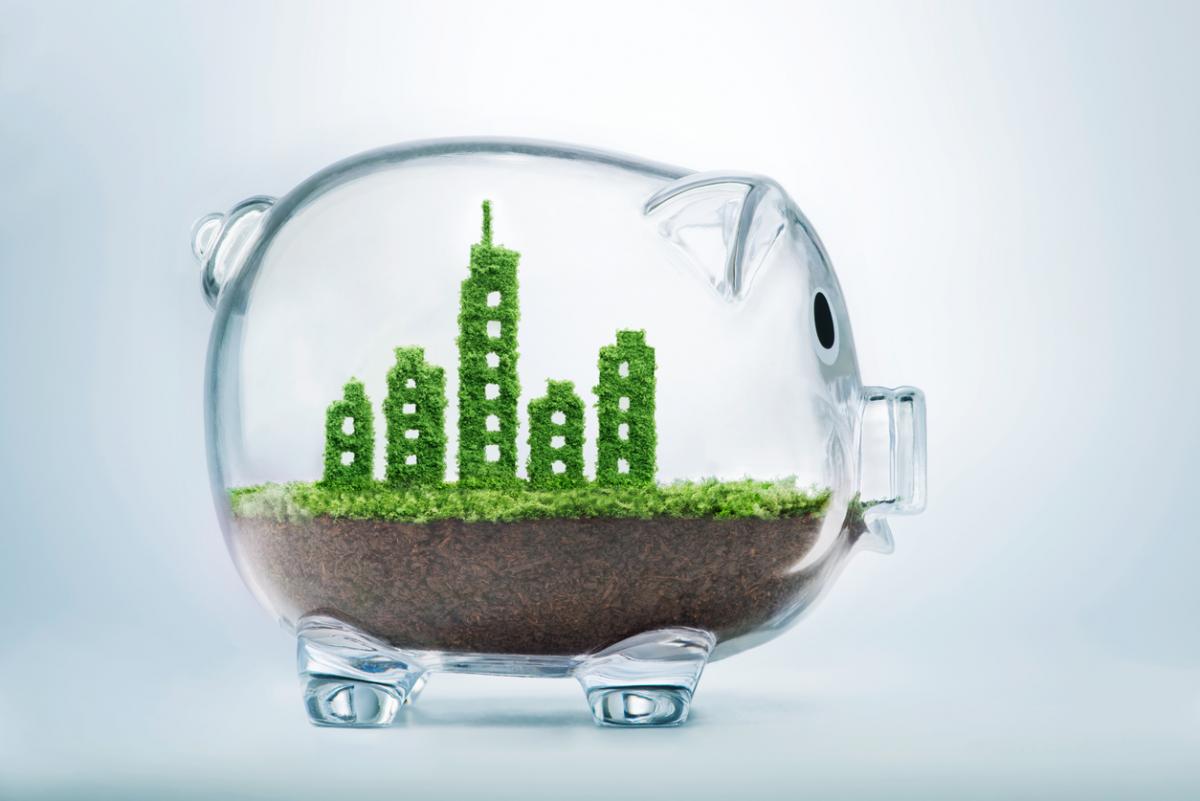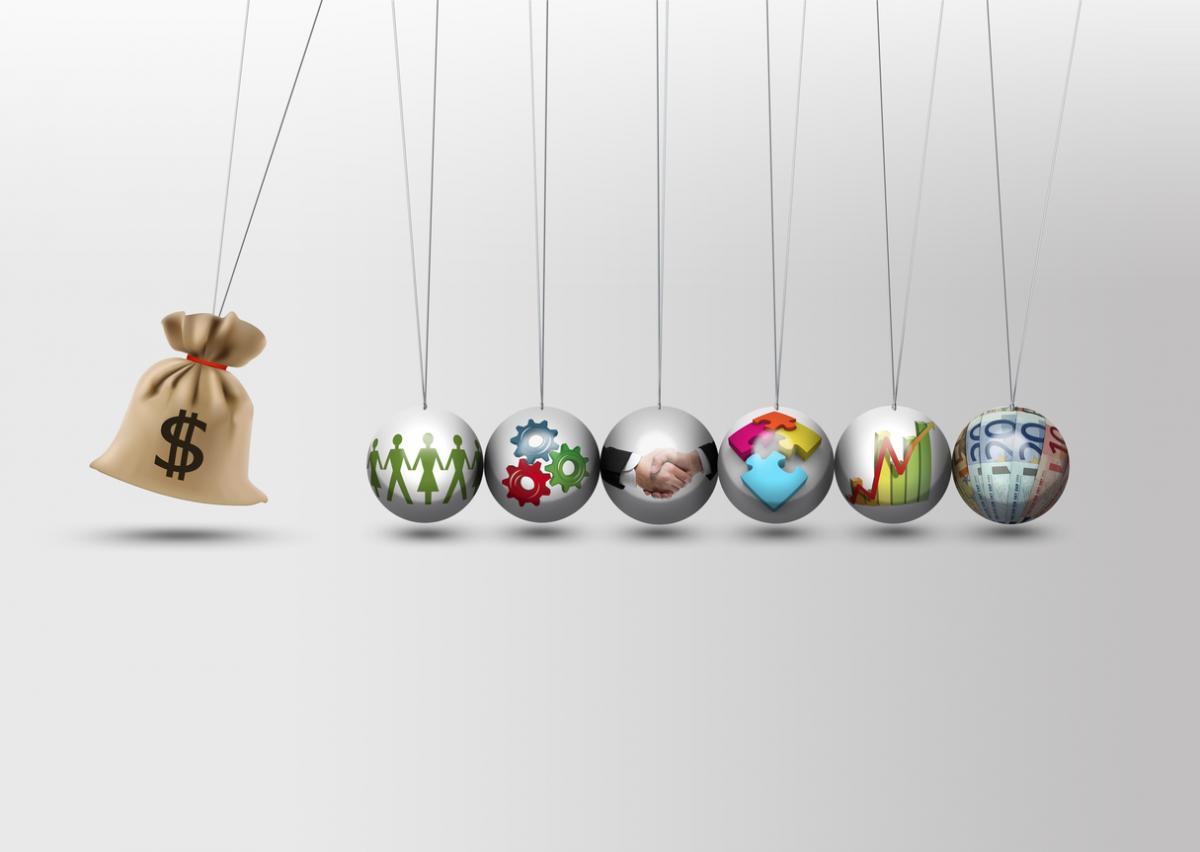Will the coronavirus crisis make or break impact investing?

The ethos of impact investing for positive change seems tailor-made to tackle the devastating repercussions of the coronavirus crisis as states buckle and a recession looms, but cometh the hour, cometh the family impact investor?
The $502 billion impact space is where investments are made with the aim of generating measurable environmental or social impacts while giving a competitive financial return. The strategy has been increasingly attractive to families of sustainable wealth since the Rockefeller Foundation first coined the term in 2008.
Families are well positioned to take the lead in impact, as they intrinsically take the long-view with their patient capital and philanthropy is second nature for many. Add to that the generational transfer of wealth and control to Gen-X and millennials, who are all too aware of the consequences of the Global Financial Crisis and climate breakdown on the world they are inheriting.

A quarter of the world’s family offices were already engaged in impact investing by last year, according to The Global Family Office Report 2019 by Campden Wealth with UBS. The vast majority (71%) allocated under 10% to the approach, while the average across all impact investors was 14%. Families had diversified impact portfolios and were investing most often in education (45%), agriculture and food (also 45%), and energy and resource efficiency (43%). Health care and wellness (38%), environmental conservation (34%) and housing and community development (also 34%) were not far behind in their priorities. Families were interested in impact investing in sustainable consumer products (29%), job creation (26%), women’s empowerment (also 26%), access to finance (22%), sustainable infrastructure (also 22%) and infrastructure (11%). All sectors which are and will continue to be acutely in need in a brutally changed world.
 Amit Bouri (pictured), chief executive of the non-profit Global Impact Investing Network (GIIN) based in New York, told CampdenFB that the coronavirus crisis was laying bare many of the inequities in society today, and the vulnerabilities of systems in place. One of the big lessons becoming clear was the need to invest in a more resilient and inclusive system, Bouri said.
Amit Bouri (pictured), chief executive of the non-profit Global Impact Investing Network (GIIN) based in New York, told CampdenFB that the coronavirus crisis was laying bare many of the inequities in society today, and the vulnerabilities of systems in place. One of the big lessons becoming clear was the need to invest in a more resilient and inclusive system, Bouri said.
“Families of wealth can have a tremendous impact in shaping the recovery by investing in a way that creates more economic opportunity for vulnerable populations, and to ensure that sustainability and inclusion are front and centre for recovery.”
Would you say there is now the opportunity for impact investing to come of age in answer to the social welfare impacts of the coronavirus pandemic?
_0.jpg)
While there is still tremendous uncertainty, one thing that is clear is that we will emerge from this crisis with a new normal. I believe that will include a transformation in the way we see the role of capital and the way we invest—so that the purpose of money is not just solely to make more money, but also to rebuild a more resilient, inclusive, and sustainable world. This moment of crisis is also a moment of opportunity for profound change, and many are recognising a need for a different way forward to respond to the inequities that have been highlighted by this crisis. Impact investing will have a significant role in both the recovery and longer-term rebuilding of our society and economy, and I expect more investors will look to impact investing as they allocate capital coming out of this crisis.
How are investors in ultra-high net worth (UHNW) family offices and family businesses engaging with impact investing in response to the crisis?
This crisis is continuing to unfold, so many investors are trying to make sense of the situation and take stock of what this crisis means for their portfolios. After this initial phase of regrouping and reassessing, we are seeing several UHNW family offices and individuals already signal interest in trying to put their money to work in order to help address the needs that are being surfaced by the crisis. This includes both investments in things that relate to health and medical needs, but also in ways that will drive a much broader and more inclusive economic recovery.
Which areas of impact investment are families focused on and which areas need more investment?
We see families making impact investments across a wide range of sectors. And it’s also important to view this from a global perspective as impact investing activity can vary across the world. Within the GIIN’s network, we have investors making impact investments on six continents with investments ranging from sustainable agriculture, affordable housing, healthcare, and education, to helping promote financial inclusion.
Impact investing is occurring across the UN Sustainable Development Goals. In terms of where we’ll see additional need, I expect that there will be great need across the board coming out of this crisis. There will be an increased focus on addressing basic needs, like access to healthcare and housing, as well as building a more sustainable food system. Investors can help to address these issues through impact investment.
What monetary value of impact investing are you seeing families make and is it enough to make genuine positive change?
We currently estimate the global size of the impact investing market at $502 billion in assets under management. It is important to note that much of impact investing is about developing new business models that both have a positive impact and generate financial returns. This is where families can play an instrumental role—in seeding and building new business models and developing new markets. So, the ultimate impact of families in impact investing is not just about the scale of capital, but it’s also about how that capital is used.
 However, are the issues some families have with impact remaining unresolved, such as finding the opportunities in market and the expertise to execute the investments then accurately measuring the impacts?
However, are the issues some families have with impact remaining unresolved, such as finding the opportunities in market and the expertise to execute the investments then accurately measuring the impacts?
There is a learning curve to impact investing, both in terms of developing the right type of pipeline, and in developing the right internal capabilities. Many family offices globally have become very sophisticated in impact investing, and many more are just ramping up their impact investing activities.
Is there a risk of investors competing over the sexier impact investments instead of investing where the need is greatest?
What is most important is to look at the long-term trends of things like inequality, or maybe the many facets of inequality and climate change and invest to try to address those. There are certain sectors that may come in and become more popular, but it’s important for impact investors to focus on how to improve the livelihoods of lower income people, and how to best support and help sustain them.
What I’ve found is that many family offices are initially motivated to pursue impact investing because of their passion. For example, a family may be really motivated to invest in agriculture because they are in agricultural businesses or are passionate about nature and align those values with their investments. On the other hand, some families are focused on running professional portfolios and become interested in impact investing because it makes sense for their portfolio strategies. Regardless of how families start, it is important to think about impact investing across their portfolios, and to build portfolios with impact investments across sectors, asset classes, and geographies.
Will the impact investing space maintain this level of engagement among families once the pandemic subsides—would the predicted recession derail investments and cause harm?
 Coming out of the last recession, we’ve seen strong growth in impact investing—both in terms of the amount of capital deployed, but also in terms of geographic diversity. New investors have been putting capital to work around the world across a variety of sectors. Coming out of this crisis, I believe there will be a great need for impact investing from the communities hit hardest by the crisis, and a lot of interest from investors who want to contribute to the recovery. There is an important role for impact investors to drive capital to high impact companies to build a more inclusive and sustainable recovery from this crisis.
Coming out of the last recession, we’ve seen strong growth in impact investing—both in terms of the amount of capital deployed, but also in terms of geographic diversity. New investors have been putting capital to work around the world across a variety of sectors. Coming out of this crisis, I believe there will be a great need for impact investing from the communities hit hardest by the crisis, and a lot of interest from investors who want to contribute to the recovery. There is an important role for impact investors to drive capital to high impact companies to build a more inclusive and sustainable recovery from this crisis.
Families often have a deep sense of connection to communities and an intergenerational view on how to invest. Because they are often thinking about leaving a legacy for future generations, they will play an important role in shaping the way we invest to help drive the economic recovery. If we do want a more resilient and sustainable world, it’s important that we have a recovery that helps address inequality and address environmental sustainability. Impact investing is a very powerful vehicle for families who are thinking about creating a better future as they can put their money to work to help invest in that future.






